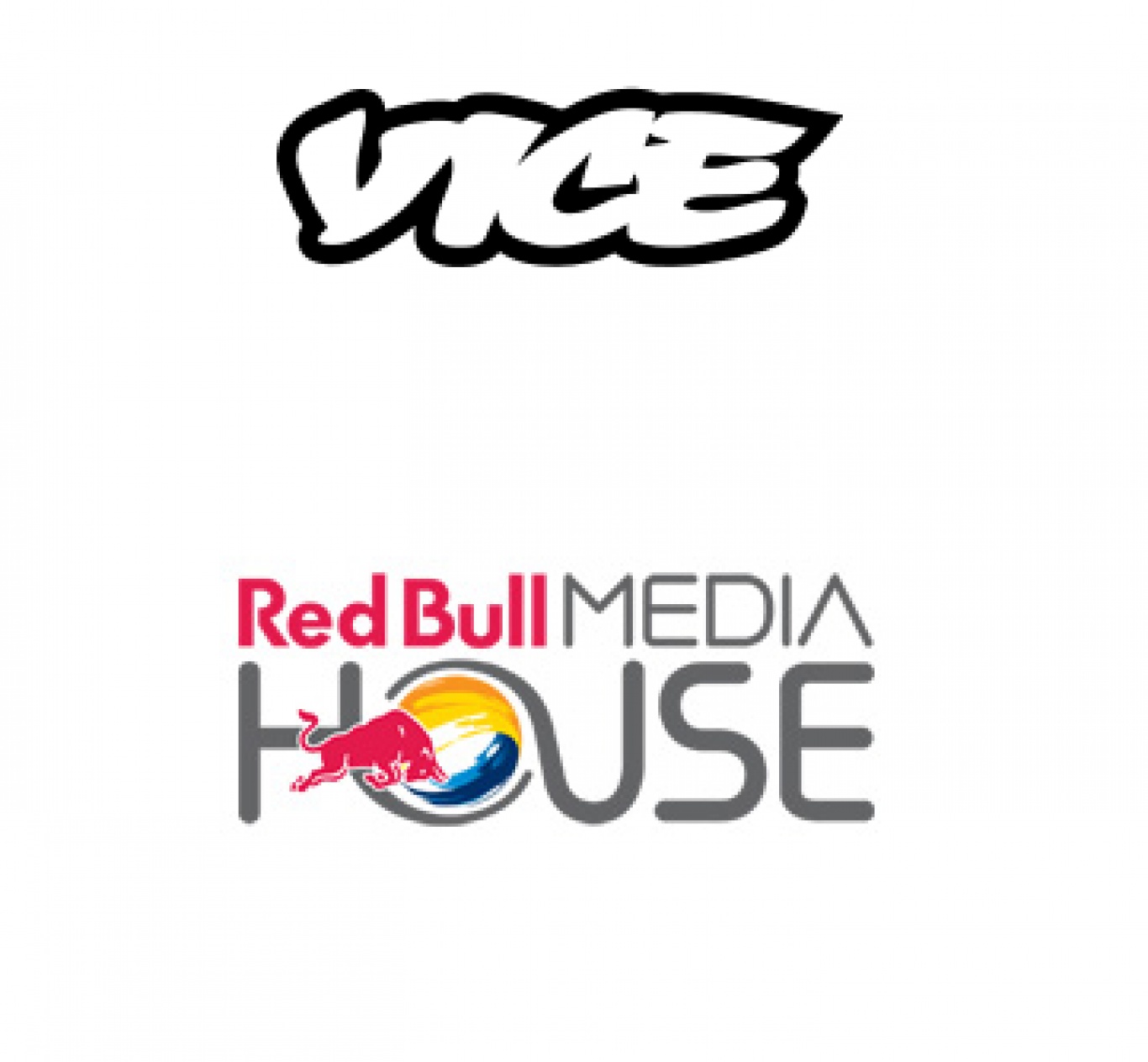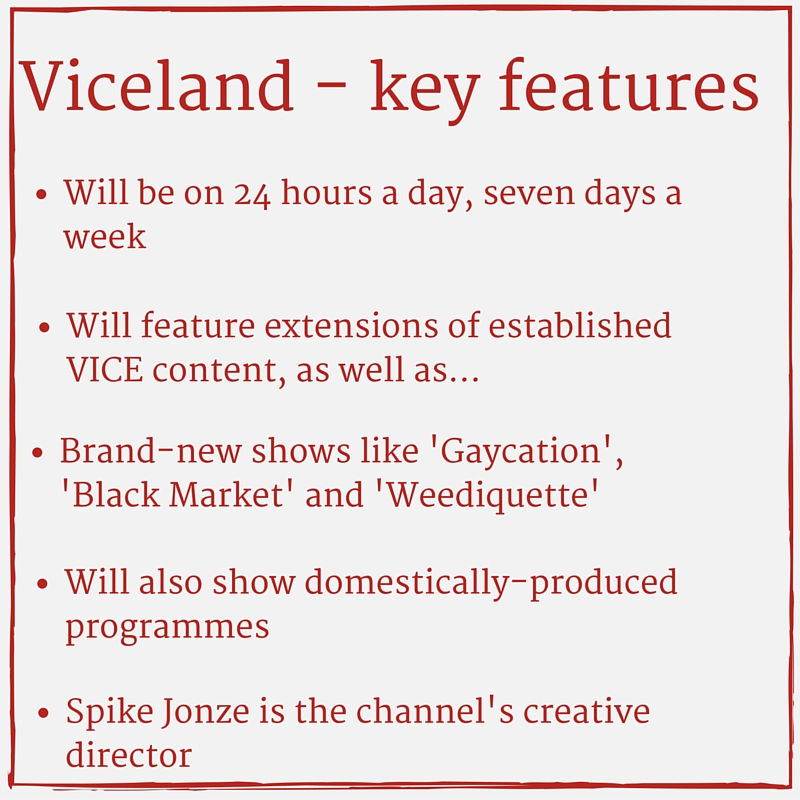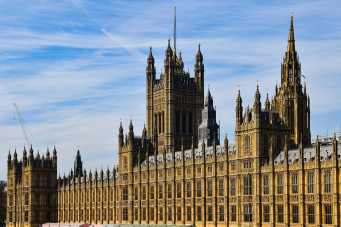
What is Vice? And what’s it got to do with Red Bull marketing?
We’re often talking on this blog about how…
TV’s moving away from the traditional linear model
Children now spend more time online than watching television
The millennial generation would rather watch OTT services than pay-TV
Well, two young, disruptive media companies are once again bucking trends right, left and centre: Red Bull and Vice Media.
What is Vice Media?
Vice started life in 1994 as a free punk magazine called the Voice of Montreal, later dropping the ‘O’ and relocating to New York.
It’s now a news and entertainment group with a valuation of at least $4.2 billion, produces content across multiple platforms and media (including HBO) and is backed by Disney, 21st Century Fox and A&E Networks.
And it’s the tie-up with A&E that’s crucial in this context, as Vice Media establishes a new, linear TV channel – Viceland – that replaces A&E Networks’ H2 service.
Already launched in the US, Viceland comes to British homes later this year and will be the company’s first television channel in Europe. It’s looking to establish a further 12 channels across the continent over the next 18 months.
Content will be produced entirely by Vice’s in-house production team, which is based in Shoreditch, east London, and is likely to be broadcast via Sky, Virgin Media and BT.
Here are some key features of the channel:

VICE boss and co-founder Shane Smith says:
This is the biggest move yet in our long love affair with our British and Irish audience. Viceland is going to give them a whole new way to experience Vice content – on their own televisions, around the clock.
According to A&E Networks CEO Nancy Dubuc, Vice Media is “a very powerful brand” and its ability to win the attention of a very hard-to-reach audience “cannot be underestimated”.
Smith, who intends to build Vice into “the next MTV, ESPN and CNN rolled into one” and has already attracted advertisers including Google, Levi’s and Intel (all of whom have created branded content with Vice), adds:
We look at it very simply. We want to do three things – we want to make good content, we want to have as many eyeballs as possible see that content, and we want to make money so that we can keep paying to do that content.
Spike Jonze, meanwhile, is enjoying this venture with Viceland, having co-created Jackass and directed films including Being John Malkovich. He says:
The idea of a TV channel seems like a fun medium to explore and play with. We’re trying to make this organism that’s alive. You turn it on, and it comes into your house like water.
Our mission with the channel is not that different from what our mission is as a company. It’s us trying to understand the world we live in by producing pieces about things we’re curious about, or confused about, or that we think are funny.
And if it doesn’t have a strong point of view then it shouldn’t be on this channel.
Red Bull – marketing like no one else
A more familiar name, perhaps, Red Bull – a unique and aspirational brand that’s now in over 160 countries – knows how to draw an audience.
Its marketing is exemplary and a Red Bull TV channel is the perfect platform to capitalise on that.
Huge stunts such as 2012’s record skydive by Felix Baumgartner from 128,000 feet (more than 24 miles) above the earth’s surface was shown live around the world with more than eight million people watching him on YouTube.
Red Bull TV already exists online – where sports, music and “lifestyle entertainment” content is available live or on-demand – and broadcasts via a couple of other platforms, too:
- The Red Bull TV App (iOS, Android and Windows Phone, as well as Amazon Fire TV (in the US), Apple TV, Chromecast, Kindle Fire, Xbox 360, PlayStation 3 and 4, Roku and several Smart TVs)
- The Red Bull-branded YouTube channel, which is followed by more than five million subscribers
Of course, cool brands like this aren’t easy to build and are keenly exploited.
Red Bull Media House has produced all this…
- Video on demand
- Long-form feature films
- Magazine-style specials
- Documentaries
- Live broadcasts
- Reality TV formats
- Content for print, digital media, music and games
…and is now looking to make its mark in traditional television, with its first full-time linear channel in the UK (the company already operates a linear channel, Servus TV, in Germany, Austria and Switzerland).
Red Bull have hired two senior British TV producers to push their commissioning venture, and the channel is expected to launch later this year.
Want to know when we publish more stories like this? Fill in the little form below and add your name to the list that receives an email every time.

Netflix, Paramount and Warner Bros.: What the Deal Means for the Broadcast and Production Industry

How the Employment Rights Act 2025 Is Reshaping the Freelance Market
